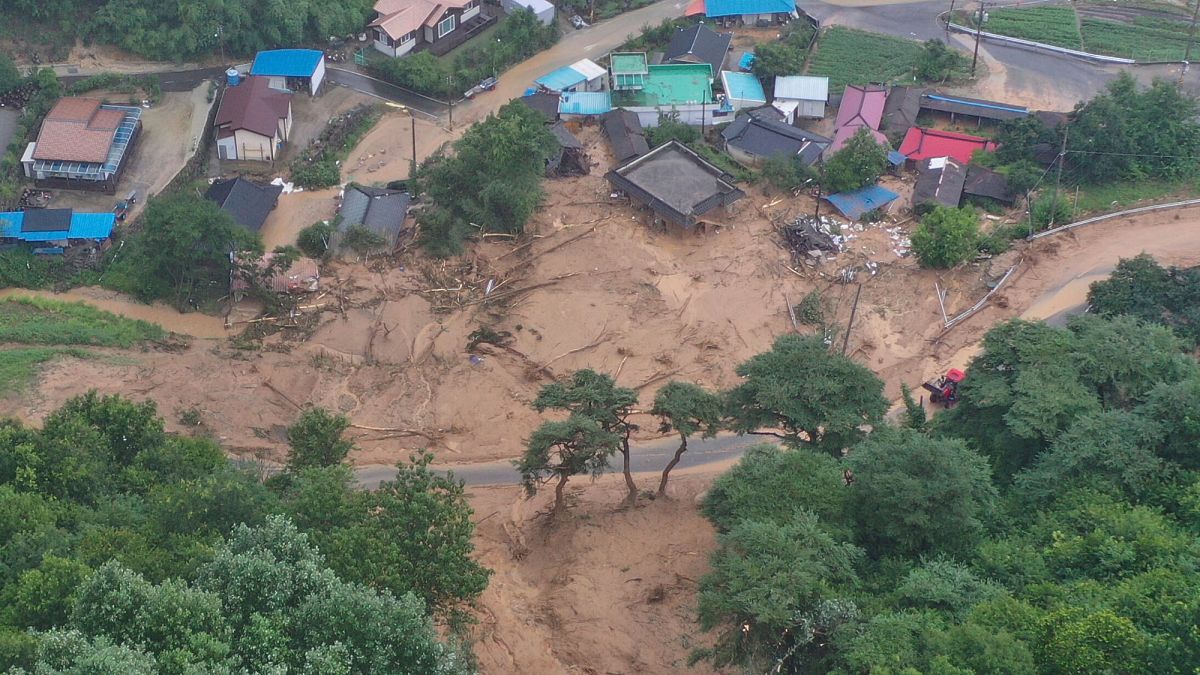

As the world experiences the profound impacts of climate change, recent events across different regions underscore the urgent need for effective solutions and resilient strategies. Each event, while presenting challenges, also offers opportunities for growth, learning, and the fostering of a more sustainable future.
In South Korea, the country has encountered significant challenges due to heavy rains over the past week. These torrential downpours have resulted in the unfortunate loss of at least 17 lives, with several others still missing. The relentless rainfall has also led to severe flooding, disrupting daily life and prompting calls for improved disaster preparedness. Despite the immediate concerns, this situation highlights the importance of enhancing infrastructure and community awareness to better manage such natural occurrences in the future.
Meanwhile, as heatwaves become more frequent and intense globally, the concept of climate shelters is emerging as a pragmatic solution to mitigate the effects of extreme temperatures in urban areas. These shelters serve as sanctuaries, providing refuge from the scorching heat, particularly for those facing energy poverty. By reducing reliance on traditional cooling systems, climate shelters not only offer relief but also contribute to long-term sustainability goals. They symbolize an innovative approach to urban planning that prioritizes both human comfort and environmental conservation.
In the political arena, the United Kingdom’s Liberal Democrats have taken a proactive stance on addressing climate issues. Recognizing the growing concern among citizens about environmental degradation, the party is advocating for robust green policies. This approach aims to attract voters who are increasingly mindful of the planet’s health, indicating a shift towards more eco-conscious governance. Such policy directions reflect a broader trend where environmental responsibility becomes a key consideration in political discourse, signaling hope for meaningful change driven by collective action.
The effects of climate change are intricately linked to economic aspects as well. Recent reports have detailed the impact of extreme weather events on food prices, with notable increases in oils, cocoa, and various fruits and vegetables. This phenomenon illustrates the complex interplay between environmental conditions and economic stability, necessitating adaptive agricultural practices and diversified supply chains. By understanding these dynamics, communities and policymakers can work together to ensure food security while minimizing ecological footprints.
As these diverse examples illustrate, the challenges posed by climate change are multifaceted but not insurmountable. Through strategic planning, innovative solutions, and international cooperation, it is possible to build resilient communities capable of withstanding and flourishing amidst environmental uncertainties. The path forward involves a harmonious balance between human needs and natural ecosystems, fostering a future where both thrive together.
By drawing lessons from current events and leveraging collective wisdom, society can embark on a transformative journey towards sustainable living. As we reflect on these developments, we are reminded of the power of unity, creativity, and determination in shaping a brighter and more harmonious world for future generations.
Source: {link}
